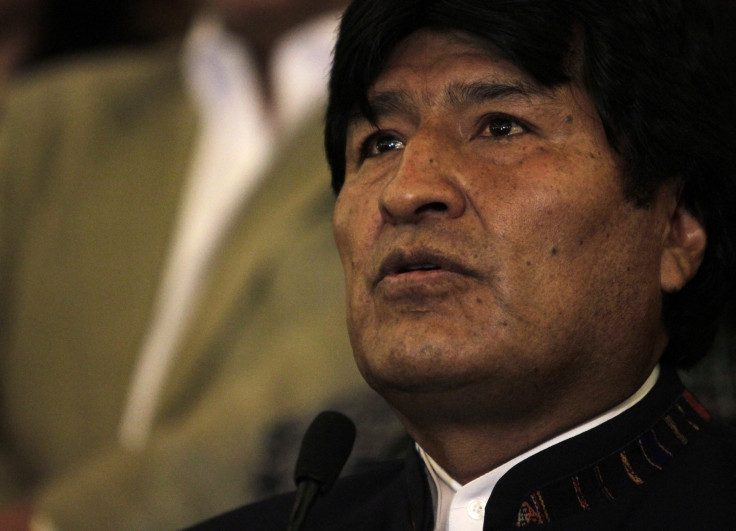Landlocked For A Century, Bolivia Now Wants Access To The Sea, Asks Chile For Help

Officials from the governments of Chile and Bolivia met on Wednesday to discuss a way for Bolivia to access the Pacific Ocean. Felipe Bulnes, a politician from Chile, and Eduardo Rodríguez Veltzé, the former president of Bolivia, appeared before a judge in the Hague after La Paz presented a petition in April.
Bolivia has demanded an access to the sea as part of a historic judicial action, which originated with a war that involved Chile, Bolivia and Peru between 1879 and 1883. The three countries signed a peace treaty in 1904, under which Bolivia lost territory to Chile and lost its Pacific Coast. Since then, the landlocked country has been trying to regain its lost coastline, which has led to tense diplomatic relationships between the two South American countries over the decades.
Bolivian President Evo Morales started the current petition in 2011, announcing that he wanted to go to “international courts and organizations, asking for the right of Bolivia to have its own way to the Pacific.” Chilean President Sebastián Piñera froze the negotiations, prompting Morales to tell Venezuelan TV network Telesur that when “the Chilean brother says he is not going to give an inch, it’s humiliating.”
Bolivia’s first strategy was to impugn the peace treaty, but then it switched to calling out the Chilean government for its initiation of negotiations with no follow-through for the last 60 years, including talks with former dictator Augusto Pinochet, who ruled Chile under a brutal military regime in the 1980s, and socialist ex-President Michele Bachelet, who had a good relationship with Morales until she left the presidency in 2010. Bolivia argued Chile is obligated to provide it with access to the sea and plans to provide evidence of Chile's past compliance on the issue in court, according to La Paz newspaper El Diario.
But Piñera’s administration called this strategy “weak” and, as reported by Chilean newspaper La Tercera, assured it has no such obligations with its neighbor. “Beyond the specific expectations of Bolivia, they have no rights over Chilean territory, nor its seas, and that is going to be our position,” Bulnes, the ambassador of Chile to the U.S. and designated official in the case.
Chile is also in the midst of a political campaign, with presidential elections looming on June 30. Piñera has asked all Chilean citizens to agree on a position regarding Bolivia’s demands. The president has even suggested that all political candidates arrive at a consensus on the matter, particularly Radical Party candidate José Antonio Gómez, who has openly supported Bolivia's demands for access to the Pacific, as reported by Santiago radio station Duna.
Meanwhile, Chilean citizens apparently do not agree with Bolivia's stance. According to a survey by the Catholic University of Chile in 2012, 54 percent of the population asserted that Chile owes nothing to Bolivia, while 28 percent think Bolivia should have the right to use Chilean commercial ports, and 11 percent concede that Chile should give up part of its territory to its neighbor.
Bolivia’s demands were not the first territorial issue that Chile has faced, Spanish newspaper El País reports. Chile and Peru started a maritime dispute in the Hague in 2008 to determine the exact distribution of fishing waters. The resolution to that trial will be out on July 25.
Follow me on Twitter: @PReyMallen
© Copyright IBTimes 2024. All rights reserved.





















